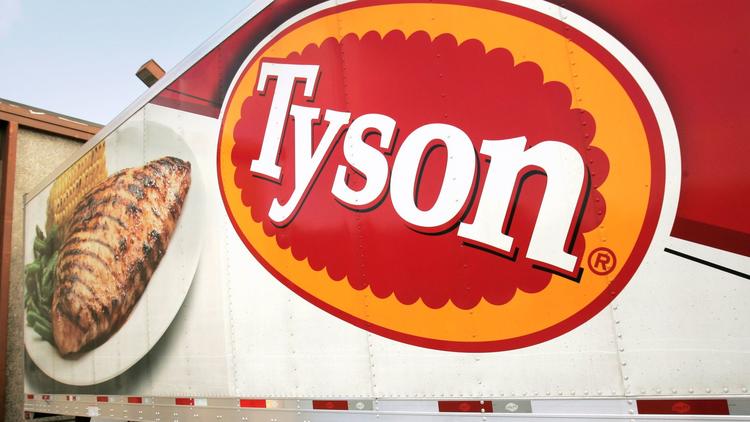Chicago Tribune: Second lawsuit against poultry giants alleges chicken price-fixing conspiracy

In this Oct. 28, 2009, file photo, a Tyson Foods, Inc., truck is parked at a food warehouse in Little Rock, Ark. Tyson Foods is among poultry producers recently sued by Winn-Dixie, alleging a widespread industry price-fixing scheme. (Danny Johnston / AP)
by Ally Marotti | January 15, 2018
A second lawsuit has been filed against some of the nation’s largest poultry producers, alleging they have conspired to fix the price of broiler chickens for nearly a decade.
The complaint filed by Winn-Dixie Stores and its sister grocery, Bi-Lo Holdings, against Tyson Foods, Perdue Farms and Park Ridge-based Koch Foods comes two months after a federal judge refused to dismiss a similar lawsuit against the three companies.
In the suit filed Friday in U.S. District Court in Chicago, Jacksonville, Fla.-based Winn-Dixie Stores and Bi-Lo Holdings allege the companies conspired to fix the price of chickens for nearly a decade, in part by “destroying” their own breeder hens and eggs to hamper production, according to a lawsuit. Since 2008, the coordinated production cuts have resulted in a roughly 50 percent increase in the price of broiler chickens — the most popular kind of chicken meat in the country, according to the lawsuit.
The chicken manufacturers named in the suit together control about 90 percent of the $30 billion broiler market, according to the lawsuit.
Tyson spokesman Worth Sparkman called Friday’s case an “add-on lawsuit” and said it doesn’t “change the fact that these claims are unfounded because we’ve not done anything wrong,” he said. “We will defend our company in court.”
Representatives from Koch Foods could not be reached for comment Monday. A lawyer representing Winn-Dixie and a spokesman for Perdue Farms declined to comment.
The grocery stores allege they paid artificially inflated prices for chicken and have suffered as a result. It’s an “injury of the type that the antitrust laws were meant to punish and prevent,” according to the suit.
Maplevale Farms, a food service distributor based in New York, led a class-action lawsuit filed in federal court in Chicago in 2016 that made similar allegations. A judge declined to dismiss the suit in November.